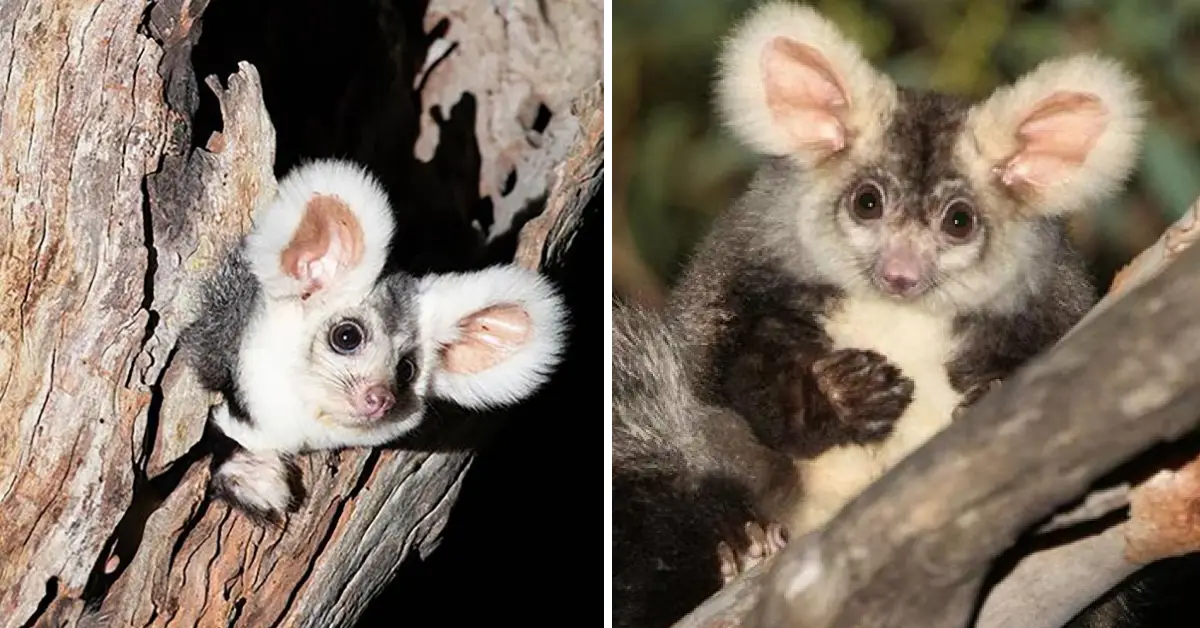When looking back, 2020 is a year to rather erase it from memory than remember it. But even so, this year had some positive outcomes, especially in the animal world. With humanity in lockdown, wildlife seemed to reclaim its rights all over the world, but the most exciting news come straight from Australia, where scientists have recently discovered two new mammals species.

While initially it was thought to be only one species of the greater glider, the latest reports indicate there are actually two more species of this tiny mammals. The greater glider is a possum-sized marsupial that lives in Eastern Australia. It has very big ears comparing to its tiny body and it soars from three to three in searching for its favorite meal, eucalyptus leaves.
two new greater glider species have been discovered in australia!
it was previously assumed they were of one species, but apparently greater gliders comprise of three separate species. they’re one of the world’s biggest gliding mammals. look at how cute they are! pic.twitter.com/neVdL7Klv3
— freyr (@sunfloweraidil) November 8, 2020
After running genetic tests collected from gliders, the researchers from the Australian National University, the University of Canberra and James Cook University concluded there are three distinctive species of glider. The study was published last week in Nature’s public access Scientific Reports journal.

“Australia’s biodiversity just got a lot richer,” professor Andrew Krockenberger from the James Cook University told Sydney Morning Herald. “It’s not every day that new mammals are confirmed, let alone two new mammals.”
😯 TWO new species of greater glider have been discovered!
These incredible creatures are listed as threatened in Victoria, yet their habitat is STILL being destroyed by government-owned loggers VicForests 😡 https://t.co/WTZ12iUxqk
— Environment Victoria (@EnviroVic) November 6, 2020
Speaking fo the the West Australian, Kara Youngentob, one of the researchers explained: “It’s really exciting to find this biodiversity under our noses. We found they were profoundly different…This also means that we know almost nothing about those two other species. If we don’t start working them out we could end up losing them.”
The Greater Glider. *Adorable*! 😊😘
I rush to learn more and find out they’re “capable of gliding 100 metres through the air, but barely able to put one foot in front of the other on land”…and they’re nearly extinct. 😑 Dammit. #HumansKillEverythingIncludingThemselves pic.twitter.com/1nJGLXWZjm
— Nnedi Okorafor, PhD (@Nnedi) November 8, 2020
Just like other numerous species in Australia, the greater glider is listed as vulnerable due to the devastating bushfires that struck the Australian wildlife last year. As a result, the recent study raise concerns regarding the species conservation.
“The lack of knowledge about the species can result in an inability to properly manage and protect species from extinction,” the study reads. “This is especially true in the wake of a natural disaster, when wildlife management decisions need to be made under challenging circumstances.”
(Source: Nature | SydneyMorningHerald | TheGuardian | CNN)

